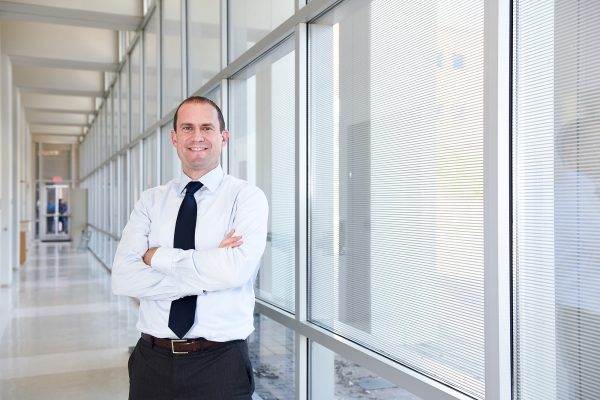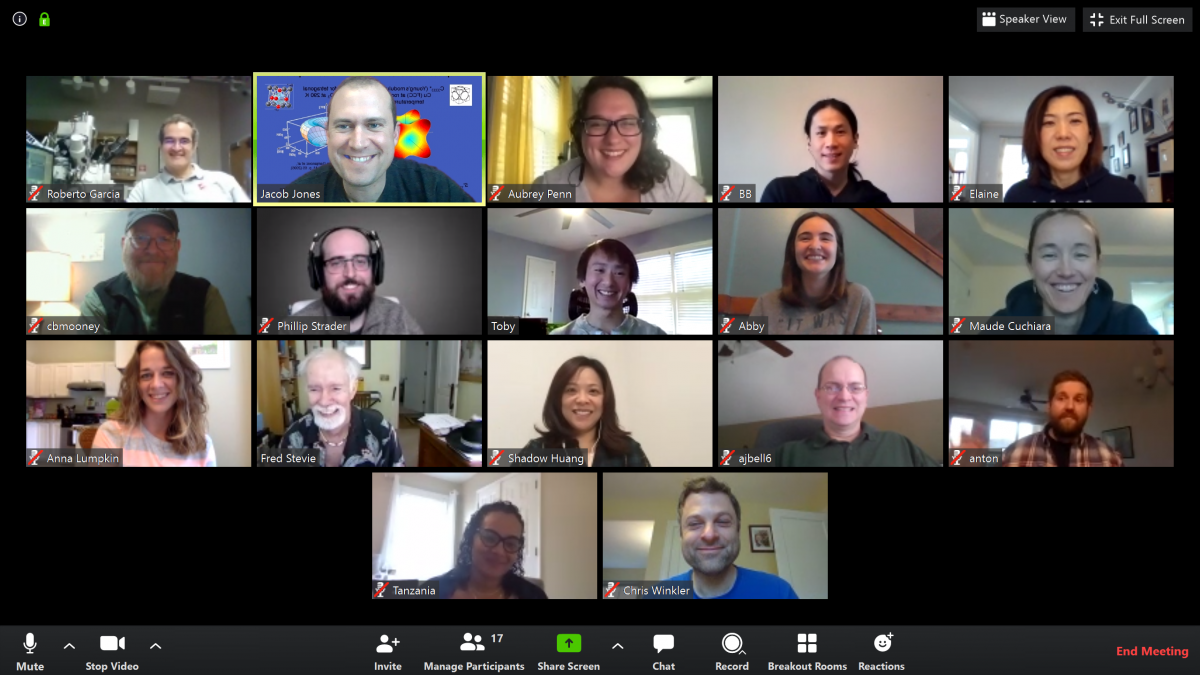
COVID-19 may have disrupted our on-campus operations, but the AIF has been working hard to enhance our service and user support in the most effective and productive way possible. In this update, I provide some information about our current state of limited on-campus operations as well as new mechanisms we have created to connect with you online and continue to support your existing research and development activities and to start learning some new tools and instruments.
An update on our reduced on-campus operations:
Like many of our counterpart facilities across the country (e.g. see NNCI site statuses), NC State on-campus research activities are limited to essential activities that are officially approved through a university process. A few AIF-related essential activities were approved that directly support coronavirus researchers or are related to the medical supply chain. Presently, all approved essential activities involve the scanning and transmission electron microscopes.
To keep the electron microscopes operable to support essential and university-approved research activities, the AIF has three technical staff members who were designated as “mandatory” according to the new university definition (Garcia, Winkler, Mooney). These staff members are allowed to be on-campus for a short period of time to perform these activities. As a result of their efforts, we anticipate the microscopes will be ready to support all users’ needs on “day 1” of resumed on-campus research operations in the future.
Continuity and Enhancement of Online User Support:
Though most of our on-campus research support is suspended, the AIF has created a structure to support internal and external users’ research, education, and training needs online. All of our open activities will be posted on the AIF calendar.
ONE-ON-ONE USER SUPPORT – “Supporting existing users” remains the highest priority of AIF during the present state of operations. Never before has it been so easy to connect with a staff member to discuss your results or experimental ideas! Simply reach out to a staff member and ask for one-on-one online consultation. They will respond and connect with you quickly.
REMOTE CONNECTION TO DATA ANALYSIS COMPUTERS – The AIF has enabled remote access to some of our data analysis computers. This includes access to analyze SEM EDS data (Mooney), TEM data (Winkler), X-ray diffraction data (Chung), X-ray CT data (Jansson), and AFM data (Mooney). To learn how to access these resources, reach out to the respective lab manager. Accessing the data analysis computers is free, but requires scheduling.
OPEN-“DOOR” OFFICE HOURS – The AIF Director and several staff have scheduled open-“door” (virtual “door”) office hours. Just like you would do on-campus during office hours, pop in anytime during an open Zoom session to meet and discuss your research activities, AIF operations or strategic plans, or just to chat over coffee with staff and other users.
USER GROUP MEETINGS – User group meetings are open forums for users of specific labs to share their results, see recent staff instrument highlights, and to help develop the user community around specific techniques and capabilities. Online user group meetings are informal, free, and expected to attract up to 20 users at a time, a size that is inviting for dialogue.
TECHNIQUE INTRODUCTION SEMINARS – These online seminars provide an opportunity for users to learn the most important fundamentals underpinning particular characterization techniques and see some exciting and interesting example applications. They involve a 30-45 minute presentation by an AIF technical staff and questions are invited during the presentation or at the end. Users could consider this opportunity to take a “shallow dive” into a new technique. Technique introduction seminars are free.
INSTRUMENT TRAINING Part 1 (the online component) – Users can complete the theory/lecture component of our conventional “short courses” now in an online format. AIF staff will present essential theory and practical operations of a specific instrument, e.g. VPSEM, Rigaku XRD, AFM, Raman. Users who take Part 1 of the instrument training now will be prioritized for the in-lab (Part 2) training component once the university resumes on-campus research activities. (This is your opportunity to position yourself at the front of the line!) The online (Part 1) instrument training is free; Part 2 (in-lab) training will utilize the standard rates for on-campus short courses.
K-12 ACTIVITIES: This week, the RTNN pioneered a new online K-12 student activity that utilized a portable (desktop) scanning electron microscope to image household items at magnifications much greater than in an optical microscope. The March 31 event was watched by hundreds of viewers. This “Take-out Science” program runs weekly and will soon be expanded through the recent acquisition of a second desktop SEM, due to be received at NC State the week of April 13. These are exciting times to bring science home and online!
Finally, we have exciting news to share at the April 8 Bio-Imaging Users Group Meeting about a critical new instrument that will arrive our facility next week! Tune into the user group meeting to hear the announcement!

The photo shows one of our twice-weekly, online AIF staff meetings during which we create and deploy
the many activities described above.